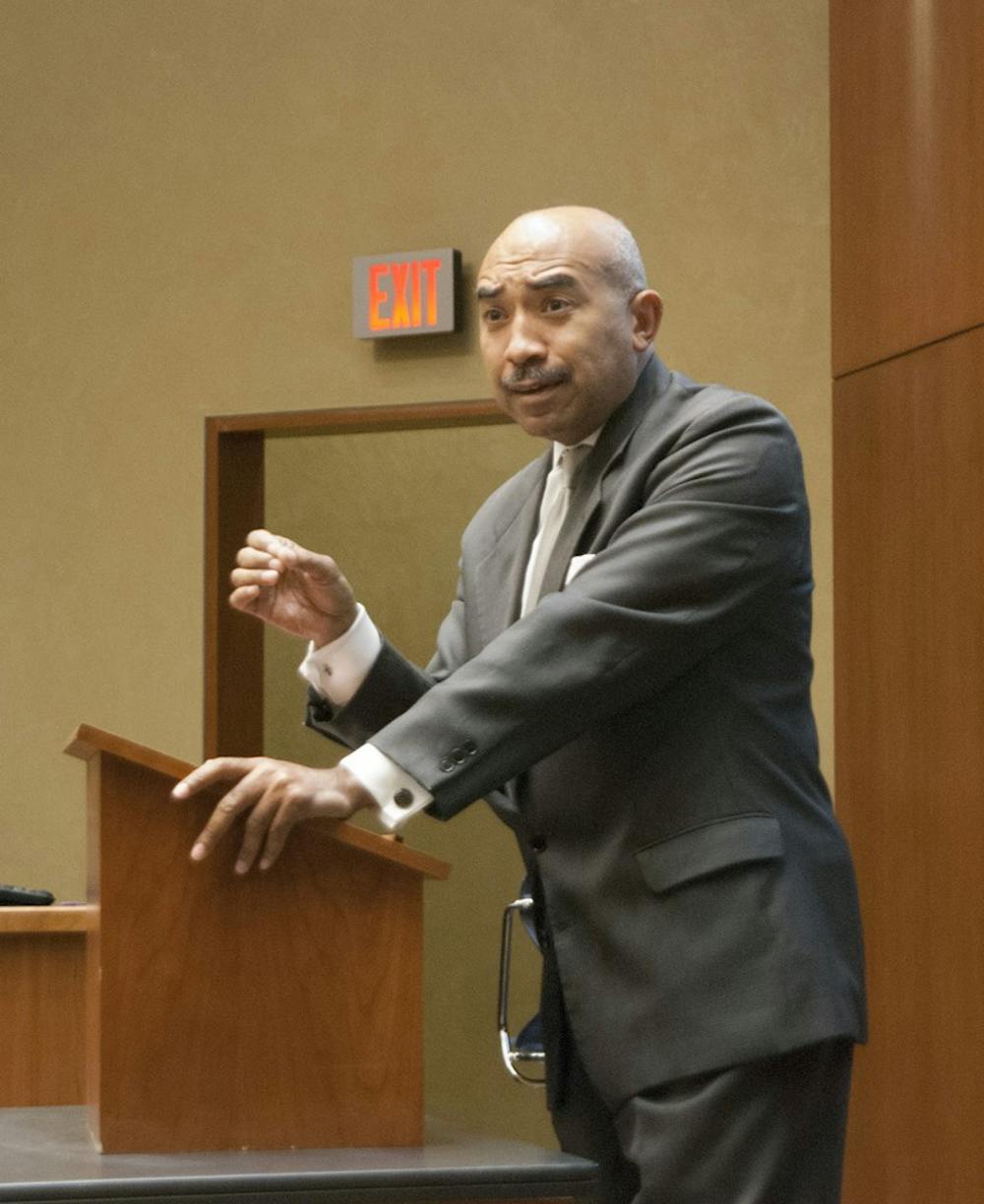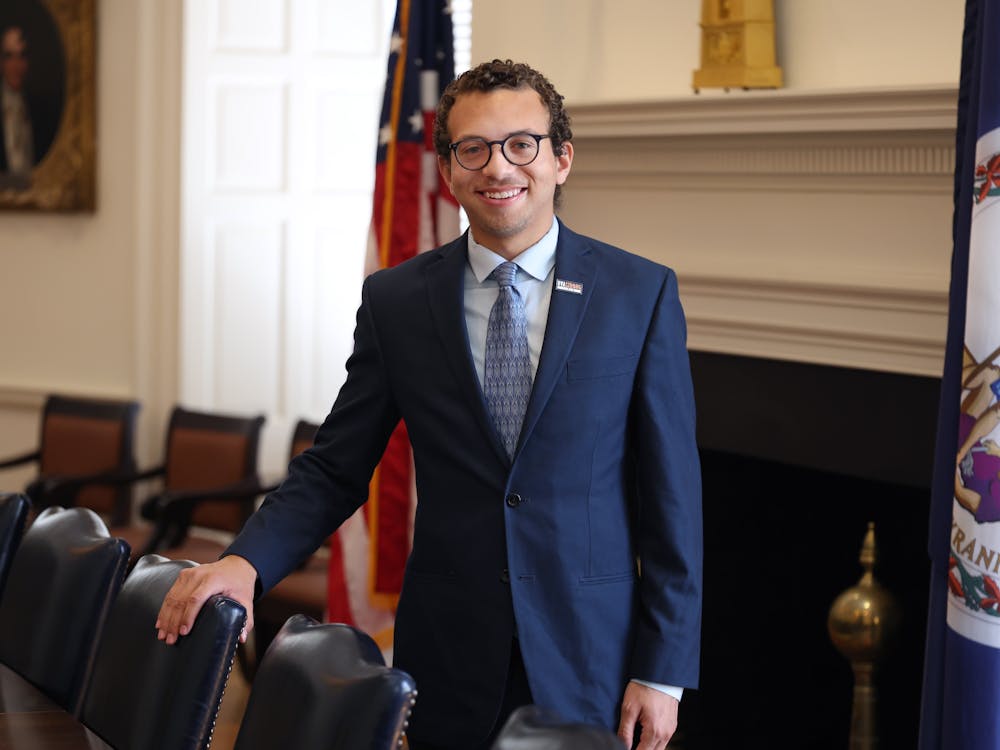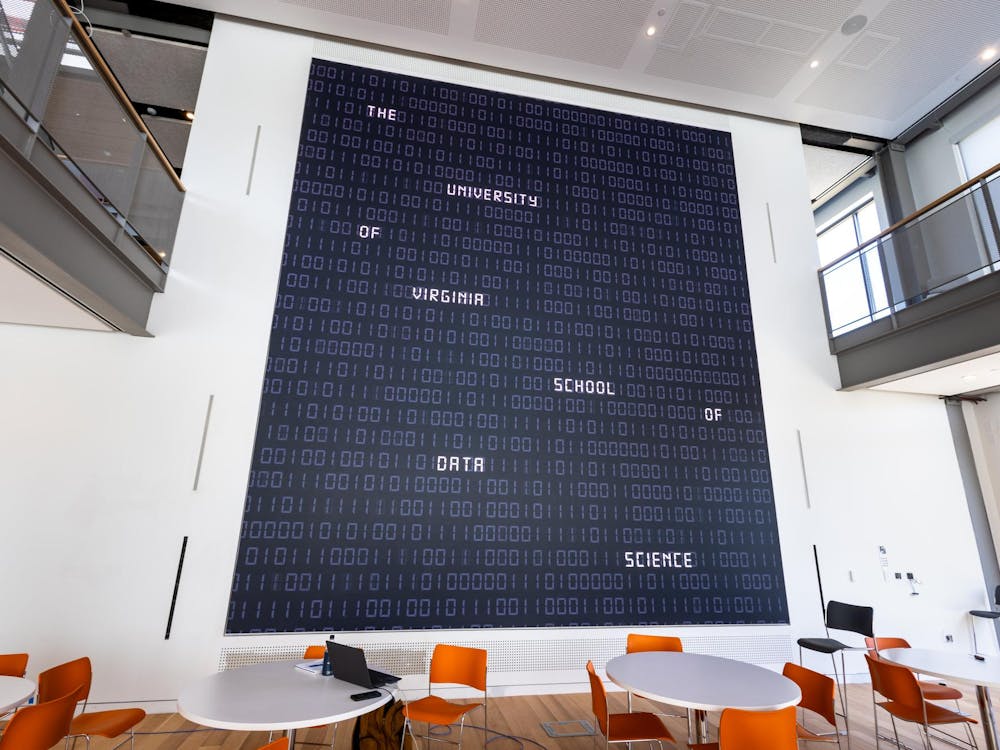Omega Psi Phi fraternity hosted alumni speaker Gary Flowers for a forum titled “From Ferguson to 4th Year: Tools for Building a Better Community” in Nau Hall this past Thursday.
Flowers, who served as executive director and CEO of the Washington-based Black Leadership Forum, an alliance of 51 national African American organizations, spoke about how racial profiling and the shooting of Michael Brown in Ferguson this past August relate to students at the University.
“The point I’m making is that it was a double standard,” Flowers said. “We want to open a kind of dialogue on what type of impact is made [in terms of profiling] on the colored men on Grounds.”
Fourth-year College student Marta Woldu discussed the importance of meeting issues of race, class, systems of inequality and privilege head-on, saying they exist as both harmful and disproportionately problematic forces.
“It’s important to the U.Va. community because U.Va. has been turning a blind eye to very serious issues of privilege and how to unpack that privilege,” Woldu said. “Some of my classes have done a great job of addressing some of these issues and perpetuating provocative conversation, while in other situations I feel as though we’re back to square one, and a person has never encountered these types of issues before.”
Wes Bellamy, president of the Young Black Professionals Network of Charlottesville and a teacher at nearby Albemarle High School, said there must be a dialogue between involved parties.
“Young people need to be empowered and armed with knowledge,” Bellamy said. “Most importantly, they need to have dialogue, because without dialogue, there can be no progress.”
Flowers addressed what happened in Ferguson with a four-pronged explanation.
“First of all, there was the perception of the irrational fear of a large black man,” Flowers said. “There was a fear of excessive force. ... I think there was a lack of transparency, because there was no police report filed immediately. There was a lack of due process … [and] I question the constitutionality of due process in this case. Last but not least, prosecutorial discretion. ... The prosecutors have a big say in whether or not the process moves forward or not.”
Flowers also addressed the issue of “isms,” including racism, sexism and classism, discussing how he has personally experienced racial profiling — including a white woman stopping and letting him pass her after exiting on the same floor from an elevator, being taken for a hotel employee by another hotel guest and having had people sitting in cars lock their doors when he walked past.
“We need to be moving towards a respect for cross-cultural differences,” Flowers said. “I do believe that a lot of ‘isms’ are from ignorance — a lack of knowledge of other people and their differences. Also, there is a false perception of power. … That people with wealth exercise power over people without.”
Sergeant Matt Clark of the University Police Department was also present at the forum and said such discussions need to occur more often.
“The isms, racisms, the economics, … they exist in all of us whether we choose to embrace them or not,” Clark said. “How we look, how we speak, how we carry ourselves, where we work, what we do. I don’t ever want to be seen as a white police officer. I want to be seen as Matt Clark. I could be different than the next white police officer. I want people to be safe — that’s why I am doing what I’m doing.”







